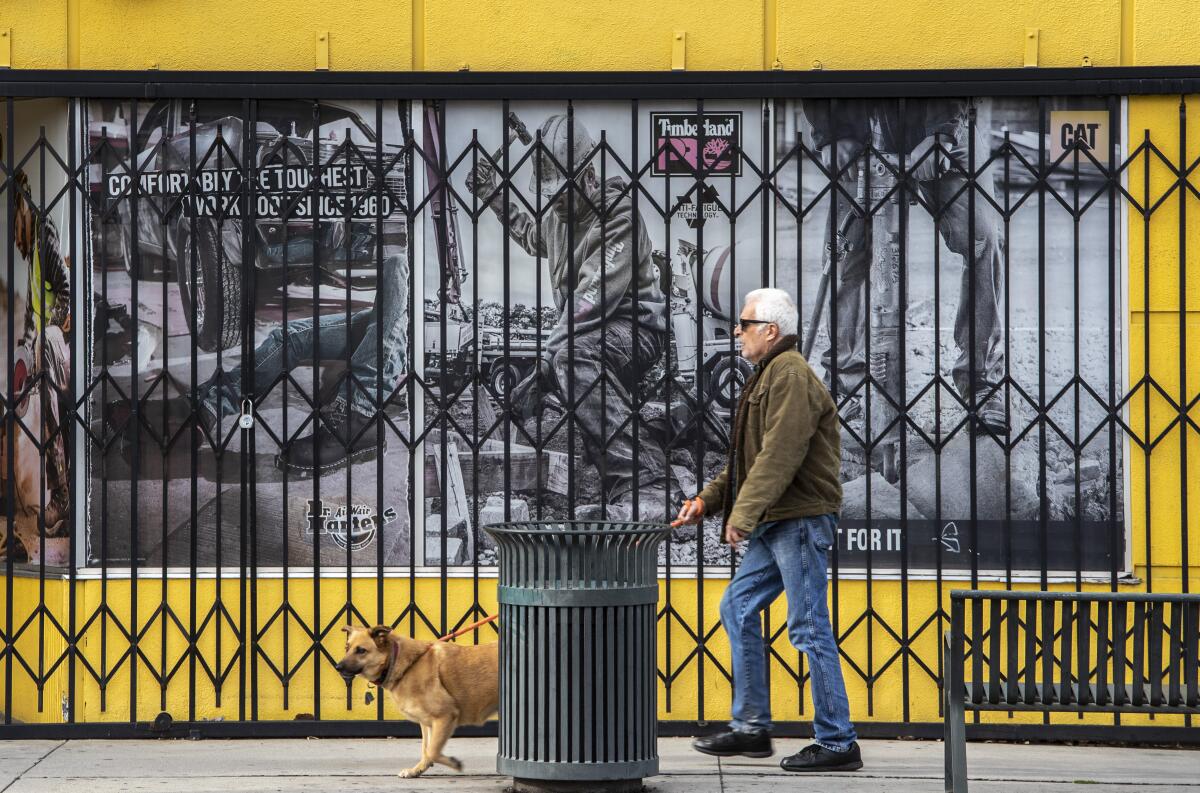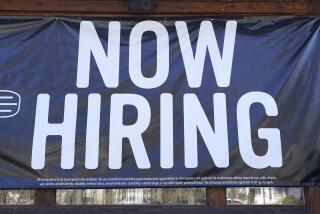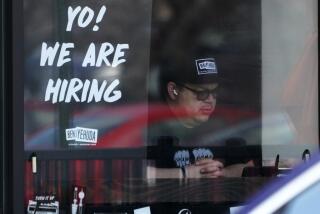Financial fear is rising. Half of small businesses say they won’t last six months

- Share via
This once-in-a-century pandemic has unleashed financing fears all over corporate America that far exceed the 2008 crisis, as executives prepare for fresh economic and market pain.
A new study by Federal Reserve researchers used a machine-reading program to sift through more than 600 earnings calls last month to map out the virus-induced fallout.
Some 42% of American non-financial public companies are discussing slashing investments, 27% are talking about equity payouts, and 17% are focused on drawing down on credit lines, conclude economists Andrew Y. Chen and Jie Yang. At the peak of the last recession, the figures were 25%, 11% and 7%, respectively.
Meanwhile, a survey of 375 small businesses from the Society for Human Resource Management has found that 52% expect to be out of business within six months. The survey, conducted April 15-21, doesn’t account for improved business conditions as some U.S. states reopen this month.
Businesses might be able to open their doors again soon — but as they adapt to social distancing as a norm, can they keep on the lights?
Just over a third of small firms expect that they can continue to operate more than six months, while 14% are uncertain, according to the survey. Eight in 10 firms have cut hourly workers; 60% have laid off salaried workers. A third of the companies polled by the advocacy group expected their payroll reductions to be permanent.
The Fed researchers collected the number of times senior company officials used words laced with financing worries for clues on what was next in this economic crash. Based on trends in 2008, sentiment won’t normalize for a year, according to the Fed researchers.
“The dramatic increase in the share of firms taking these actions indicates that financing concerns amid the COVID-19 outbreak are even more severe than they were in 2008,” they wrote.
The results underscore the immense pressure facing corporate America on the heels of an economic slump expected to be the sharpest in a century. Compared with 2008, there are few signs of stress in the banking system, but corporate bankruptcies are already on pace to exceed levels in the last recession. Businesses are grappling with a collapse in demand, supply disruptions and persistent uncertainty over the timeline for the reopening of large economies.
All that belies the stock market rebound and pricing for insurance against default on corporate bonds. The S&P 500 is up more than 25% from its March trough on hopes of an economic recovery aided by an easing outbreak and unprecedented stimulus. The cost of credit default swaps has dropped alongside the premiums paid by the riskiest borrowers.
More to Read
Inside the business of entertainment
The Wide Shot brings you news, analysis and insights on everything from streaming wars to production — and what it all means for the future.
You may occasionally receive promotional content from the Los Angeles Times.











